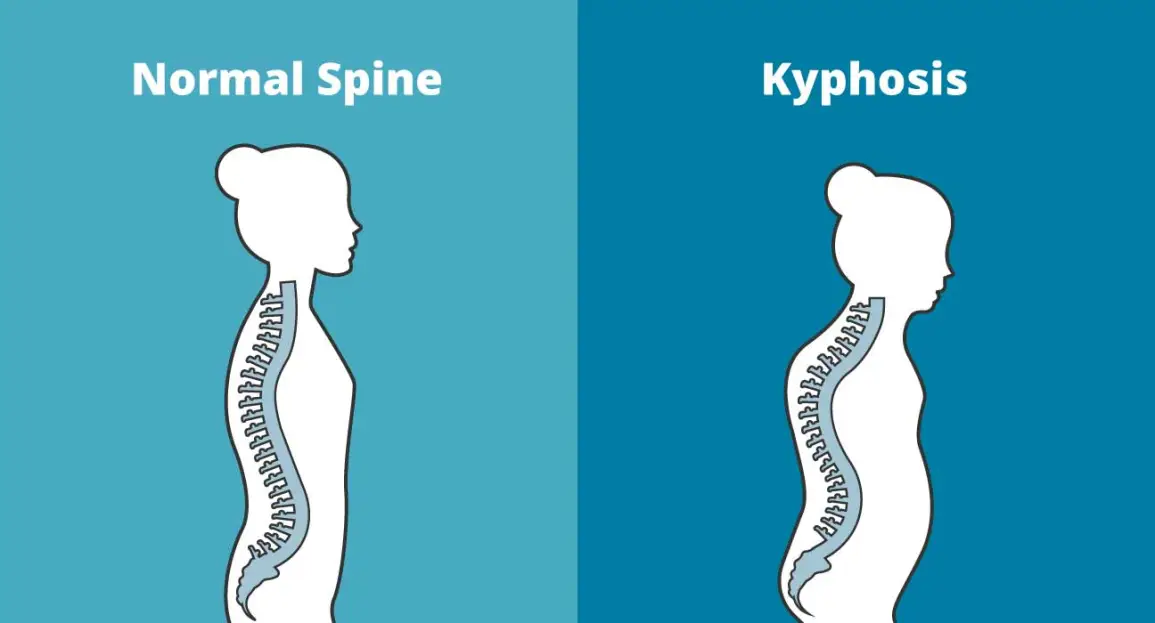
Kyphosis Treatment – Vidharbha Institute of Spine Surgery
Understanding Kyphosis
Kyphosis refers to an abnormal rounding or “hunchback” appearance of the upper spine. While a mild curvature is normal, excessive curvature (usually greater than 50 degrees) can lead to discomfort, stiffness, and in severe cases, difficulty breathing or nerve compression.
Kyphosis can affect people of all ages, from adolescents to the elderly, and may result from multiple causes including:
Poor posture (Postural Kyphosis) – Common in teenagers and office workers due to slouching habits.
Congenital Kyphosis – Caused by spinal malformation present at birth.
Scheuermann’s Kyphosis – Results from abnormal growth of the vertebrae during adolescence.
Osteoporotic Kyphosis – Often seen in older adults due to vertebral fractures caused by weak bones.
Degenerative Kyphosis – Linked to aging, disc degeneration, or arthritis.
Recognizing the type and severity of Kyphosis is essential for effective treatment. Our specialists perform detailed assessments to create a personalized treatment plan focused on long-term recovery and spinal health.
Symptoms of Kyphosis
The signs of Kyphosis vary based on its severity and cause. Common symptoms include:
Rounded or hunched upper back
Visible change in posture
Back pain or stiffness
Fatigue due to muscle strain
Tingling, numbness, or weakness (in severe cases)
Breathing difficulties (if the curvature compresses the chest)
If you notice persistent postural changes or back pain, early evaluation is crucial to prevent progression and permanent spinal deformity.
Comprehensive Diagnosis
At Vidharbha Institute of Spine Surgery, diagnosis begins with a thorough clinical evaluation and advanced imaging studies, including:
X-rays: To measure the spinal curvature angle.
MRI or CT scans: To assess nerve compression, disc damage, or spinal abnormalities.
Bone density tests: Particularly useful in detecting osteoporosis-related Kyphosis.
This detailed evaluation allows our spine specialists to determine whether the condition can be managed conservatively or requires surgical correction
Kyphosis Treatment Options
We offer a full spectrum of treatment options, from non-surgical management to advanced corrective surgery, ensuring every patient receives care suited to their specific condition.
1. Non-Surgical Treatments
For mild to moderate Kyphosis, conservative treatment is often effective in relieving pain and improving posture.
Our non-surgical care includes:
Physiotherapy:
Customized exercise programs strengthen back and core muscles, correct posture, and improve flexibility.Posture Correction & Bracing:
Specially designed spinal braces are recommended for younger patients or those with progressive curvature to prevent worsening.Pain Management:
Medications, lifestyle modifications, and ergonomic advice help reduce discomfort and muscle tension.Nutritional & Bone Health Support:
For patients with osteoporotic Kyphosis, calcium, vitamin D, and bone-strengthening medications are prescribed.
Our physiotherapy department plays a key role in long-term recovery by helping patients maintain spinal alignment and prevent recurrence.
2. Surgical Treatment
When the spinal curvature exceeds 70–80 degrees, causes nerve compression, or significantly affects quality of life, surgery may be necessary.
At Vidharbha Institute of Spine Surgery, our experts perform precision-based spinal correction surgeries using advanced techniques like:
Spinal Fusion Surgery:
Stabilizes and realigns the spine by joining specific vertebrae using rods, screws, and bone grafts.Osteotomy:
Carefully reshapes and realigns the spine for severe deformities.Vertebroplasty & Kyphoplasty:
Minimally invasive procedures to treat osteoporotic fractures and restore spinal height.
Benefits of Surgical Treatment
Improved posture and body alignment
Reduced back pain and fatigue
Enhanced breathing and mobility
Boosted confidence and quality of life
Our surgical team focuses on minimally invasive techniques that ensure faster recovery, less blood loss, and minimal scarring.
Post-Treatment Rehabilitation
Successful treatment of Kyphosis doesn’t end with surgery. We emphasize comprehensive rehabilitation that includes:
Physiotherapy and posture retraining
Gradual muscle strengthening and flexibility exercises
Ergonomic education for work and daily life activities
Regular follow-up and spinal monitoring
This holistic approach ensures sustained results and helps patients resume normal life with confidence and comfort.
Why Choose Vidharbha Institute of Spine Surgery?
Expert Spine Surgeons:
Our team includes experienced spine specialists trained in advanced spinal deformity correction.Comprehensive Care:
From diagnosis to rehabilitation, every step of treatment is managed under one roof.Modern Infrastructure:
Equipped with advanced diagnostic tools, modular operation theatres, and image-guided surgical systems.Patient-Centered Approach:
Each treatment plan is personalized based on age, lifestyle, and severity of curvature.Proven Outcomes:
High success rates, reduced recurrence, and enhanced quality of life post-treatment.
When to Seek Medical Help
Early detection of Kyphosis can prevent complications. You should consult a spine specialist if you experience:
Noticeable hump or round back
Back pain that worsens with activity
Height loss or spinal imbalance
Breathing difficulty or fatigue
Weakness, numbness, or loss of sensation in limbs
Timely diagnosis and expert care can make a significant difference in restoring spinal alignment and preventing long-term disability.
